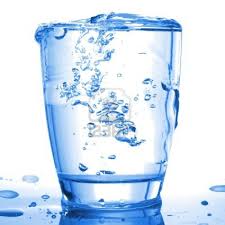One of the things I find interesting is the tricks your mind can play on you. When I was reading the Emperors of Chocolate, a book about the rise of Milton Hershey’ and Frank Mar’s chocolate empires, I found myself eating pounds of chocolate without thinking. Have you ever watched the movie Castaway? Tom Hanks is stranded on a deserted island and suffers under the blazing heat with little to no water to drink. When I watched that movie my mouth became dry and I felt dehydrated and lethargic.
Unfortunately too many people, especially those that exercise, experience these same effects and needlessly suffer from some level of dehydration. Staying hydrated is essential for everyone, but athletes and exercisers have an even greater need to maintain proper hydration. Water is the most important nutrient for life and has many important functions including regulating temperature, lubricating joints and transporting nutrients and waste throughout the body.
According to Rebecca Turner, a registered dietitian and certified sports specialist it only takes being more than 2 percent dehydrated to cause a decline in athletic performance. According to the Centers for Disease Control and Prevention, about 650 deaths each year from extreme heat could have been prevented. In total, there were 7,233 heat related deaths from 1999 to 2009 in the U.S. Living in and exercising in hot and humid South Carolina makes proper hydration even more important.
As an endurance athlete, I typically drink 90-120 ounces of water daily, even on days when I am not exercising. If I don’t consume this volume of water, I can see a decline in my athletic performance; I experience a slower recovery and don’t sleep soundly. Starting a workout or race dehydrated lowers blood volume and forces the heart to beat faster, making it difficult to meet aerobic demands.
“Dehydration in athletes may lead to fatigue, headaches, decreased coordination and muscle cramping,” Turner said. “The good news is avoiding dehydration is rather easy.” Turner recommends drinking at least 8 to 16 ounces of water one hour before activity. Diluted sports drinks and unsweetened coffee or tea also are best bets. If you are not working out for over an hour continuously, diluted sports drinks will help maintain some sodium but cut out unnecessary sugar.
While exercising vigorously, aim for eight ounce of fluid every 15-20 minutes. For continual exercise lasting longer than an hour such as endurance activities, consider electrolyte or salt tabs and diluted sports drinks. Too much water and not enough sodium can create an imbalance and lead to a condition called hypernatremia or a diluted sodium level in the blood that can lead to a number of serious medical issues.
Post exercise hydration is just as critical. Turner recommends consuming 4 ounces of fluid for every 10 minutes of exercise if not more. You should drink enough so that in 60-90 minutes you have to use the restroom. I prefer room temperature water as it is easier to drink larger quantities faster and without headaches.



No comments:
Post a Comment